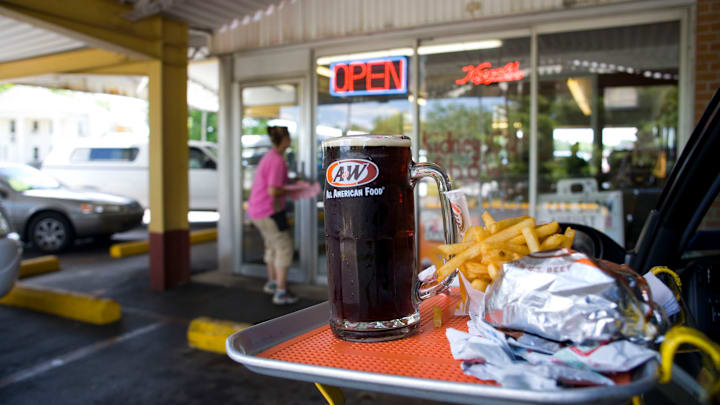When some consumers feel misled by a product’s labeling or marketing, they generally allow themselves to feel aggrieved and then move on. For others, feeling duped can lead to the pursuit of justice. For three parties who expressed dissatisfaction over A&W root beer, it meant filing a class-action lawsuit. And now, their efforts are paying off to the tune of $15 million.
According to Food & Wine, a 2020 lawsuit brought against A&W parent corporation Keurig Dr Pepper (you can probably guess what other products they’re responsible for) accused the defendants of improperly labeling A&W root beer as being made with “aged vanilla.” Instead, the soft drink was made with artificial vanilla flavoring, ethyl vanillin.
This was a load of carbonated gas according to the plaintiffs, who insisted they would not have purchased A&W root beer if they had known the truth.
While some people might consider this frivolous, a New York judge did not. A settlement has been reached in which Keurig Dr Pepper will reimburse customers who purchased A&W root beer with the “aged vanilla” labeling between February 2016 and June 2023 out of a pool of $15 million. If they don’t have a receipt, consumers will be eligible for $5.50. If they can bring receipts, they’ll get up to $25. The settlement is awaiting final approval in September. At that point, consumers can visit a claims website to get their refund.
Keurig Dr Pepper didn’t admit to any wrongdoing, instead framing the settlement as the most efficient way of closing the matter.
A&W root beer first popped up in Lodi, California, in 1919. The brand was the work of partners Roy Allen and Frank Wright—the A&W of the name—who began to franchise the brand. In addition to root beer, A&W is also known for a restaurant chain. In the 1960s, they introduced a mascot: Rooty the Great Root Bear. Rooty was not named in the lawsuit.
